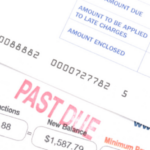Americans’ total credit card balance reached $1.079 trillion in the third quarter of 2023. With this staggering debt amount, it’s not uncommon for some to seek debt settlement and debt forgiveness. However, because paying less than you owe means you’re not entirely fulfilling your obligation, cancellation of debt may become a tax burden later on.
The Internal Revenue Service (IRS) has specific rules and guidelines regarding the tax implications of canceled debt, including student loans and credit card debt. By understanding these rules, you can better prepare for the potential tax consequences and minimize the amount of debt you ultimately pay off.
What happens when you settle credit card debt?
Debt settlement is a widely used debt relief strategy for managing credit card debt. It involves negotiating with the creditor to pay a reduced amount, typically when the borrower is delinquent. The borrower or a debt settlement company negotiates with the creditor for a lower repayment amount. Frequently, a lump-sum payment or a payment plan fulfills the settlement. If you join a debt settlement program, you might need to repay your debt monthly. And, if your debts are delinquent, the creditor will be more likely to negotiate a settlement because it may be their only way to recoup any of the debt you have incurred. However, the creditor must report your savings from the settlement to the IRS.
What are the tax implications of settling credit card debt?
Because the creditor forgives a portion of your credit card debt, the forgiven amount may be considered taxable income. The creditor will report the forgiven debt to the IRS. This may affect both your federal and state income taxes.
The 1099-C Form
If you settle credit card debt for over $600 less than you owe, the creditor must send you a 1099-C form at the end of the tax year. When you file your tax return, you must report the amount of the forgiven debt on this IRS form. If you don’t receive this form from the creditor, they may have still reported the income to the IRS. But if you don’t report the income and the creditor has, you may receive a tax bill or be audited. Therefore, knowing if you must report this income is essential to avoid paying more tax penalties.
Are there exceptions to these tax implications?
However, even though you are not repaying your debt in full, there are instances in which you may not face tax implications.
Insolvency
One of the most common exceptions to the tax implications of settling credit card debt is insolvency. Insolvency occurs when your total debts exceed your total assets. If the court deems you legally insolvent, you are exempted from paying taxes on your forgiven debt, but only up to the amount you are insolvent. For example, say you have $100,000 in assets but $120,000 in debts. This means you are $20,000 insolvent. If your creditor settles your credit card debt for $30,000 less than what you owed and you are $20,000 insolvent, you are excluded from being taxed on the $20,000. However, you must pay taxes on the remaining $10,000 that was forgiven.
Bankruptcy
If your credit card debt is forgiven in bankruptcy, it cannot be taxed. This is true for any type of bankruptcy. And with bankruptcy, no limit on forgiven debt will be excluded from being taxed.
How does the IRS know you’re exempt?
You must notify the IRS if either of these exemptions apply to you.
Form 982
To inform the IRS of your exemption, you need to fill out Form 982. This form excludes a certain amount of the settled credit card debt from the tax implications. You must include the amount of the forgiven debt provided on the 1099-C form. The lender is required to send you a 1099-C form regardless of any possible exemptions you may have. If you neglect to fill out Form 982, it could raise suspicion from the IRS.
Is it worth it to settle credit card debt?
Settling credit card debt for less than you owe may seem too good to be true. But paying taxes on the debt settlement may be the catch. However, understanding the exemptions can also help you determine whether it’s worth it for you as a taxpayer. Many individuals who are in debt trouble are insolvent. Knowing the value of your debts compared to your assets can give you a clearer picture of whether you would owe taxes and how much you may be taxed.
However, even if you are not exempt through insolvency or bankruptcy, settling credit card debt may be worthwhile, even with the tax implications. Most often, what you’ll pay in taxes on debt settlement will still save you money.
Settling credit card debt can have longer-term positive implications on your financial situation:
- Lower debt-to-income ratio: Settling credit card debt lowers your total debt, which, in turn, helps your debt-to-income ratio. This can help you be more attractive to lenders and financially stable overall.
- Cleaner credit report: Reporting settled debt as “settled” rather than “paid in full” is preferable to having a delinquency or a default on your credit report. This is particularly important because payment history is the most significant factor in determining credit scores. This can actually boost your score.
- Lower credit utilization: Settling your credit card debt will also lower your credit utilization. Your credit utilization is the amount you’ve borrowed versus the amount of credit you have available to you. Your credit utilization should ideally be below 30 percent. This is another significant contributing factor to your credit score.
Where can you turn for help?
Talking to a financial professional, such as a debt attorney, can help you understand the tax implications of settling credit card debt. A debt attorney can assist in navigating the complicated processes and criteria involved when settling debt and dealing with creditors. A debt help attorney can also guide you through the credit and debt management process, focusing on strategizing the best ways to resolve the debt, saving you money and time, and helping relieve the stress and fears of having credit card debt.
The team at Tayne Law Group, P.C., is here for you on this journey. If you’re having debt trouble or have questions about paying taxes on a debt settlement, our team of experienced professionals can help. Call us for a free consultation at 866-890-7337 or fill out our short contact form and we’ll get in touch!








